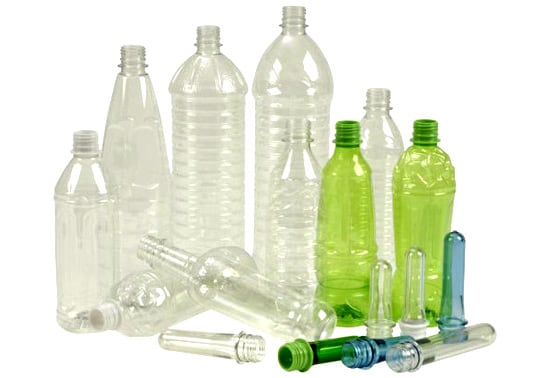 A life-cycle study of polyethylene terephthalate (PET) - the polyester plastic used for most convenience-sized soda and water bottles - has confirmed that PET resin is a highly recyclable and energy efficient packaging material.
A life-cycle study of polyethylene terephthalate (PET) - the polyester plastic used for most convenience-sized soda and water bottles - has confirmed that PET resin is a highly recyclable and energy efficient packaging material. "PET has long been the packaging material of choice for food and beverage manufacturers because of its light weight, durability and food-contact safety," said Ralph Vasami, executive director of the Pet Resin Association (PETRA). "This life cycle analysis adds a strong sustainability profile to the long list of PET's benefits."
The life cycle inventory of 12-oz water bottles made of PET (polyethelene terephthalate) and PLA (corn-based polyactide) was conducted by Franklin Associates, one of the world's leading research firms dealing in life-cycle studies.
Using U.S.-based data, the study examined the green house gas emissions, energy consumption and post-consumer solid waste of PET and PLA resins, from their manufacture and transportation as a raw material source through production of a water bottle, transportation of the bottle to the point of sale, and then final disposal of the bottle after consumer use.

The Franklin study found PET bottles, particularly those that are recycled, emit lower carbon dioxide levels, require significantly less energy, and result in less post-consumer solid waste than PLA. "It's important to note that PET's full recyclability is a key factor in jumping its sustainability profile from very good to excellent", said Vasami. "The more American consumers increase their recycling of PET bottles and containers, the greater the sustainability benefits to society.
PET is the most recycled plastic in the U.S, with a well-established recycling stream, and is identified by the 1 recycling code. PET can be collected and recycled by washing and re-melting in a similar manner to glass, or by chemically breaking down the resin into its component raw materials and processing them back into new PET resin.


